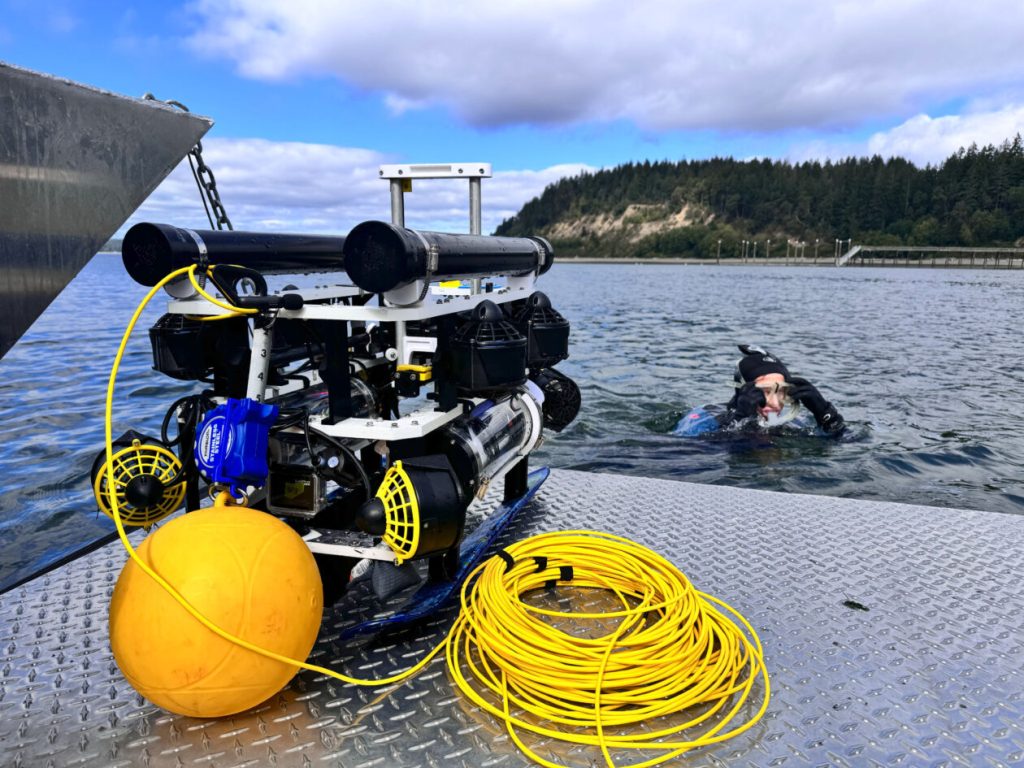A company called Reefgen has developed a marine robot called the Grasshopper that is being utilized to help with eelgrass restoration efforts in Washington’s Puget Sound. The robot, which is about the size of two milk crates, is equipped with a gaming-style controller and underwater camera that allows it to plant eelgrass shoots in the sediment. The company has partnered with the Washington State Department of Natural Resources to field test the device in an effort to reverse the degradation of marine ecosystems.
Eelgrass, an essential component of marine ecosystems, has been disappearing from key areas in Washington, including the San Juan Islands and certain bays and inlets in Puget Sound. In an effort to conserve and restore eelgrass, state leaders approved a program to restore a minimum of 10,000 acres of kelp and eelgrass by 2040. The algae and plants play important roles in marine ecosystems, providing refuge for baby salmon, filtering water, stabilizing shorelines, and serving as a spawning ground for herring eggs. Pollution, higher temperatures, dredging, and disease are some of the factors contributing to the decline of eelgrass.
Reefgen began its restoration work in tropical ecosystems, developing robots that can drill holes into dead coral reefs and insert live coral plugs. The company has also been working on eelgrass, planting seeds and shoots, and establishing a nursery for growing seagrass for replanting. The Grasshopper robot utilized in Puget Sound is a new version that is not yet faster than manual restoration efforts, but it is more efficient at dispersing seagrass seeds. Plans for new devices that can carry more plants and use quicker loading spikes are underway.
The robots developed by Reefgen are built from a combination of off-the-shelf parts and pieces made with 3D printers. The Grasshopper is powered by a battery and is small and light enough for a single person to handle. The cost of the robots is in the “five figures,” significantly less than a similar commercial device that could run over $1 million. Reefgen’s business plan involves offering robots as a service to partner organizations that need assistance with restorations. The potential demand for restoration services with robots is high, especially in areas like Europe, where there are mandates to restore degraded lands and waters.
The demonstration project in south Puget Sound has shown promising results, with eelgrass planted in July still securely anchored and appearing healthy. As Reefgen continues to improve its system, there is potential for more cost-effective restoration efforts. Washington Commissioner of Public Lands Hilary Franz expressed excitement about the robot’s potential to enhance restoration efforts through greater efficiency and cost-effectiveness. The company is optimistic about expanding its services to meet the growing demand for restoration activities worldwide.


